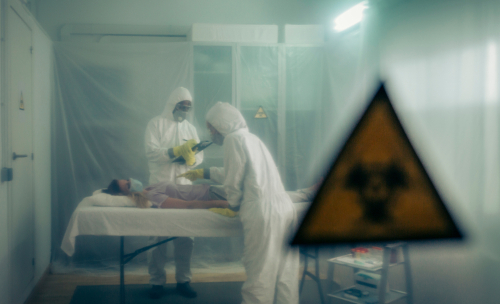
As the world grapples with the challenges of a changing climate, scientists are raising alarms about a new threat that could emerge from the depths of Siberia’s permafrost. Known colloquially as ‘zombie viruses,’ these ancient pathogens have been dormant for tens of thousands of years, but the warming climate might soon set them free.
The permafrost, which covers a significant portion of the northern hemisphere, has long served as a natural vault, preserving biological material due to its cold, dark, and oxygen-lacking environment. However, with 2023 being recorded as the warmest year since global records began in 1850, the stability of this icy stronghold is under threat.
NOT NOW, ARCTIC ZOMBIE VIRUSES pic.twitter.com/NUWwnhFzNx
— BD (@BumblingD) January 21, 2024
The increase in temperature has not only led to the melting of permafrost but also to a rise in shipping and industrial activities in the Arctic regions. These developments, while economically beneficial, could inadvertently disturb the permafrost and release pathogens that have not been active for millennia.
Jean-Michel Claverie, a geneticist, has highlighted the perfect preservation conditions of the permafrost, noting that even food could remain edible after 50,000 years if stored there. The concern is that as the Arctic sea ice disappears, it paves the way for increased human activity that could awaken these dormant microbes.
Ancient zombie viruses trapped in Arctic ice could unleash deadly new pandemic: ‘Tangible threat’ https://t.co/1bbpOh9chl pic.twitter.com/jBsQk7Mqsf
— New York Post (@nypost) January 21, 2024
The potential health risks posed by these ancient viruses are not to be underestimated. Unlike modern pathogens, these ‘Methuselah microbes’ are vastly different, and our current medical knowledge may not be sufficient to combat them effectively. The risk is compounded by the sheer number of cells that could be released; even a small percentage of these proving harmful could have significant consequences.
Research has shown that roughly one in a hundred ancient pathogens could cause major disruptions to ecosystems. With the vast numbers involved, the probability of a dangerous virus emerging is not negligible. This calls for a cautious approach to Arctic development and a reevaluation of the balance between economic gain and environmental protection.
In conclusion, while the pursuit of natural resources and the expansion of trade routes are important for economic growth, they must not come at the cost of global health security. It is imperative that we proceed with caution, ensuring that safety measures and contingency plans are in place to address any potential outbreaks of ancient diseases.
The specter of a pandemic originating from the thawing Siberian permafrost serves as a stark reminder of the unintended consequences of a rapidly warming planet.















